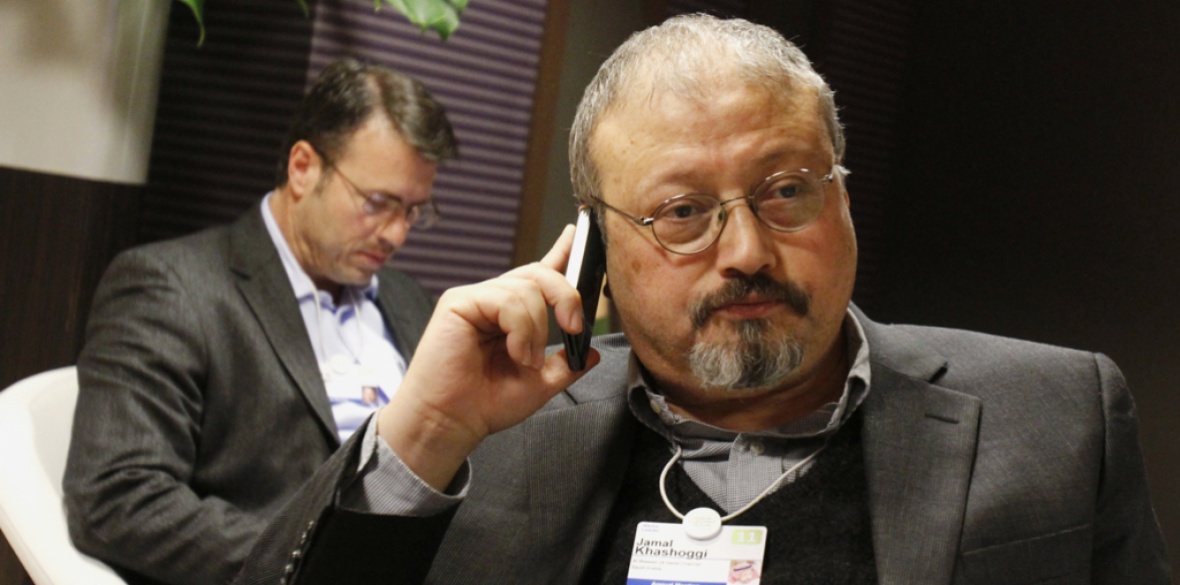This is the last article you can read this month
You can read more article this month
You can read more articles this month
Sorry your limit is up for this month
Reset on:
Please help support the Morning Star by subscribing here
SAUDI ARABIA’S top prosecutor, Saud al-Mojeb, recommended the death penalty today for five people accused of murdering Saudi journalist Jamal Khashoggi at the kingdom’s consulate in Istanbul.
A spokesman for Mr Mojeb’s office told reporters in Riyadh today that Mr Khashoggi’s killers had put in motion plans for the murder three days before his assassination.
The killers, the spokesman said, drugged and killed the writer inside the consulate, before dismembering the body and handing it over for disposal by an unidentified local collaborator. The body has yet to be found.
Today’s announcement effectively distanced Crown Prince Mohammed bin Salman from the killing by pinning the blame on one of his closest confidants, former deputy intelligence chief Ahmed al-Assiri.
As pressure mounted on the Western ally in the wake of the killing, Mr Assiri was fired from his post and now faces charges that he ordered Mr Khashoggi’s forced return to Saudi Arabia.
Saudi prosecutors said Mr Assiri deemed Mr Khashoggi a threat because of his work as a writer and because he was allegedly backed by groups and countries that are hostile to Saudi Arabia.
Turkey’s Foreign Minister Mevlut Cavusoglu was unimpressed by the Saudi prosecutor’s announcement, saying that it does not meet his country’s expectations.
Mr Cavusoglu said: “We did not find some of [Mr Mojeb’s] explanations to be satisfactory … Those who gave the order, the real perpetrators, need to be revealed. This process cannot be closed down in this way.”
Ankara insists that the suspects detained in Saudi Arabia over Mr Khashoggi’s killing should be put on trial in Turkey.
The brutal killing of Mr Khashoggi, a Washington Post columnist who had been critical of the crown prince, shocked world leaders in ways the Saudi’s Western-backed war in Yemen never did.
Eyewitnesses in Hodeidah, Yemen, said today that fighting on the ground between Saudi-led coalition forces and Shi’ite rebels had largely halted in Hodeidah but continued in Bayda, Saada and Hajja provinces.
A UN official in the war- and famine-ravaged country said that though there was still no official ceasefire, there was “a significant reduction in hostilities.”
A coalition air strike killed at least seven civilians in Hodeidah yesterday.

 Ben Cowles
Ben Cowles








